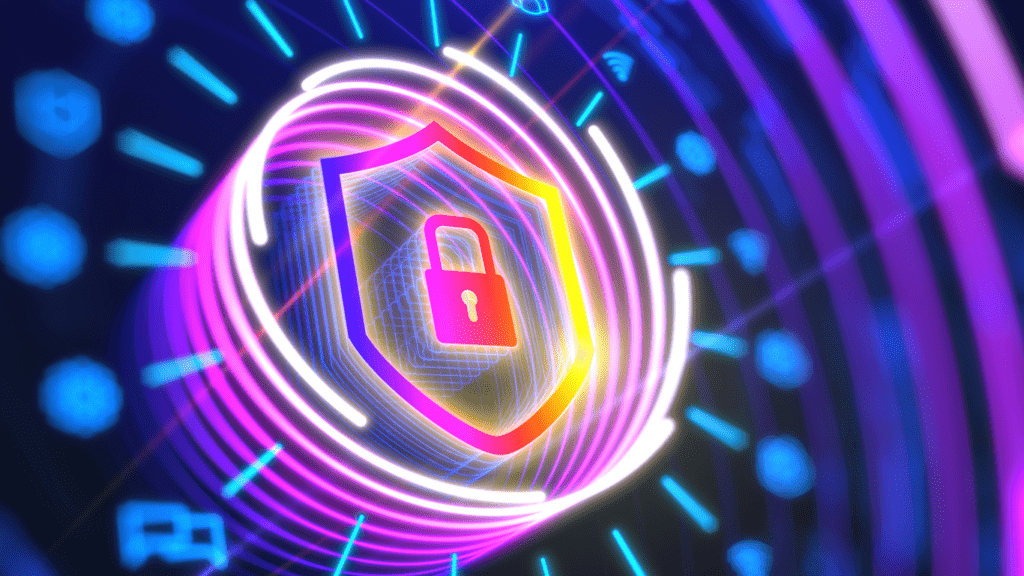As we navigate through the ever-evolving digital landscape, the emergence of Web 3.0 stands as a pivotal moment in reshaping the way we perceive digital ownership and privacy. In this digital era, where data is a valuable commodity, the principles of Web 3.0 are poised to revolutionize the way individuals interact with the online world.
With a focus on decentralization and user empowerment, Web 3.0 is set to redefine the boundaries of digital ownership and privacy, placing control back into the hands of users. In this article, I’ll delve into the transformative potential of Web 3.0 and its implications for the future of digital ownership and privacy.
By exploring the key features and benefits of this paradigm shift, we can gain a deeper understanding of how Web 3.0 will shape the digital landscape for years to come. Join me on this journey as we unravel the intricate web of Web 3.0 and its impact on the way we perceive and safeguard our digital identities.
Understanding Web 3.0
Exploring Web 3.0 is delving into a paradigm shift that redefines digital frameworks. It’s not just about browsing and interactions; it’s a fundamental restructuring of how we perceive online engagement.
The core tenets of Web 3.0 revolve around decentralization, ushering in a new era where users have more control over their data and digital footprint. In Web 3.0, individuals hold the reins to their online identities and activities.
This means that instead of large corporations monopolizing user data, individuals have the power to determine how their information is accessed and utilized. It’s a groundbreaking concept that prioritizes user autonomy and privacy, marking a significant departure from the centralized models of Web 2.0.
The decentralized nature of Web 3.0 is not just a theoretical concept; it’s a tangible shift in how digital systems operate. By leveraging blockchain technology and smart contracts, Web 3.0 ensures transparency, security, and immutability in online transactions and data sharing.
This design fosters trust among users and reinforces the integrity of digital interactions. In essence, understanding Web 3.0 entails grasping the fundamental changes it brings to digital ownership and privacy.
It’s a realm where individuals are the focal point, where data sovereignty is paramount, and where the dynamics of online engagement favor user empowerment. Embracing the principles of Web 3.0 means stepping into a future where individuals have agency over their digital lives, shaping a more secure and equitable online landscape.
Digital Ownership in Web 3.0
In Web 3.0, digital ownership undergoes a significant transformation, empowering individuals with control over their online presence and activities. This new digital era prioritizes decentralization and user sovereignty, revolutionizing how data is managed and shared.
Decentralized Ownership
In Web 3.0, decentralized ownership stands as a foundational principle, enabling users to have full authority over their digital assets and identity. Unlike in previous web iterations, where centralized entities controlled data, Web 3.0 leverages blockchain technology to distribute ownership across a network of users.
This decentralized model enhances security, transparency, and trust in online interactions, ensuring that individuals retain ownership of their personal information and digital property.
Tokenization of Assets
Tokenization of assets in Web 3.0 introduces a novel way to represent ownership rights digitally. By converting physical or digital assets into tokens on a blockchain, individuals can securely trade, track, and transfer ownership with ease.
This process enhances liquidity, enabling fractional ownership, and facilitates seamless transactions without the need for intermediaries. Tokenization democratizes access to assets traditionally limited by geographical or financial barriers, promoting inclusivity and expanding investment opportunities in a decentralized digital economy.
Privacy in the Web 3.0 Era
Exploring privacy in the Web 3.0 era unveils a paradigm shift towards heightened data protection and user empowerment. In this transformative digital landscape, privacy takes center stage as users reclaim control over their personal information.
Decentralization lies at the core of privacy advancements in Web 3.0, enabling individuals to safeguard their data from centralized authorities. By leveraging blockchain technology and smart contracts, users can ensure the security and confidentiality of their online interactions.
Enhanced transparency is a key feature of privacy in Web 3.0, allowing users to understand how their data is accessed and utilized. This transparency fosters a sense of trust and accountability in digital transactions, promoting a more secure online environment.
Furthermore, the concept of digital ownership in Web 3.0 extends to privacy, granting individuals sovereignty over their personal data. Through decentralized ownership models, users have the authority to dictate how their information is shared and managed, reducing the risks associated with centralized data storage.
By embracing the principles of privacy in the Web 3.0 era, individuals can navigate the digital landscape with confidence, knowing that their data is protected and their online activities are under their control. This shift towards enhanced privacy not only empowers users but also sets a new standard for data security and autonomy in the evolving digital age.
Impact of Web 3.0 on Data Security
Exploring the influence of Web 3.0 on data security unveils a paradigm shift towards enhanced privacy and protection in the digital realm. As Web 3.0 fosters decentralization and user autonomy, it fundamentally alters how data security is approached in the online sphere.
- Enhanced Privacy Measures: With Web 3.0’s emphasis on decentralization, individuals can now take greater control over their data, shielding it from centralized entities that pose privacy risks. By leveraging blockchain technology and smart contracts, users can secure their online interactions, ensuring data confidentiality and integrity.Improved Transparency
- and Trust: The adoption of Web 3.0 principles enhances transparency in digital transactions, fostering trust and accountability among users. Through decentralized systems, individuals can verify the integrity of their data interactions, reducing the reliance on third-party intermediaries for security.
- Safeguarding Personal Data: Web 3.0 empowers users to assert sovereignty over their personal data, mitigating vulnerabilities associated with centralized data storage. By granting individuals ownership of their digital assets and identities, Web 3.0 reduces the exposure to data breaches and unauthorized access.
The advent of Web 3.0 signifies a pivotal moment in data security, ushering in a future where individuals hold the key to their digital privacy and ownership. This transformative shift towards decentralization instills confidence in users, enabling them to navigate the online landscape with heightened security and control over their personal information.
Future Implications of Web 3.0
Exploring the future implications of Web 3.0 reveals a landscape where digital ownership and privacy undergo a significant transformation. Web 3.0’s core principles of decentralization and user empowerment are poised to reshape how individuals engage with the digital realm and manage their online identities. Let’s delve into the potential consequences of this evolution:
- Empowered Online Interactions: In the realm of Web 3.0, users are set to experience a paradigm shift towards increased control over their online activities and identities. This empowerment stands in stark contrast to the data dominance prevalent in previous web iterations, heralding a new era of digital sovereignty for individuals.
- Transparency and Security: Central to Web 3.0’s future implications is heightened transparency and security facilitated by blockchain technology and smart contracts. These innovations promise to enhance the trust and confidence users place in digital transactions, fostering a more secure online environment.
- Decentralized Ownership: Web 3.0 champions the concept of decentralized ownership, offering individuals complete authority over their digital assets and identities. This fundamental shift away from centralized control unlocks new possibilities for secure asset trading and ownership representation through tokenization.
- Enhanced Data Privacy: The future of Web 3.0 foresees a significant enhancement in data privacy measures. Decentralization plays a pivotal role in enabling users to safeguard their personal data from centralized entities, ensuring confidentiality and security in online interactions.
- User Sovereignty: With Web 3.0, individuals are poised to assert greater sovereignty over their personal data, reducing vulnerabilities associated with centralized data storage. This shift empowers users to take control of their digital lives, promoting a more equitable and secure online ecosystem.
As we gaze into the future shaped by Web 3.0, it becomes evident that digital ownership and privacy are poised to undergo a revolutionary transformation, empowering individuals and ushering in a new era of online interactions characterized by transparency, security, and user control.


 Maya Dooley has played a crucial role in the development of Lend Crypto Volt, contributing her expertise and insights to shape the platform's direction. With a background in finance and technology, Maya's analytical skills have been instrumental in crafting in-depth market analyses and risk management strategies. Her dedication to user education ensures that Lend Crypto Volt remains a valuable resource for anyone navigating the complex world of cryptocurrency.
Maya Dooley has played a crucial role in the development of Lend Crypto Volt, contributing her expertise and insights to shape the platform's direction. With a background in finance and technology, Maya's analytical skills have been instrumental in crafting in-depth market analyses and risk management strategies. Her dedication to user education ensures that Lend Crypto Volt remains a valuable resource for anyone navigating the complex world of cryptocurrency.